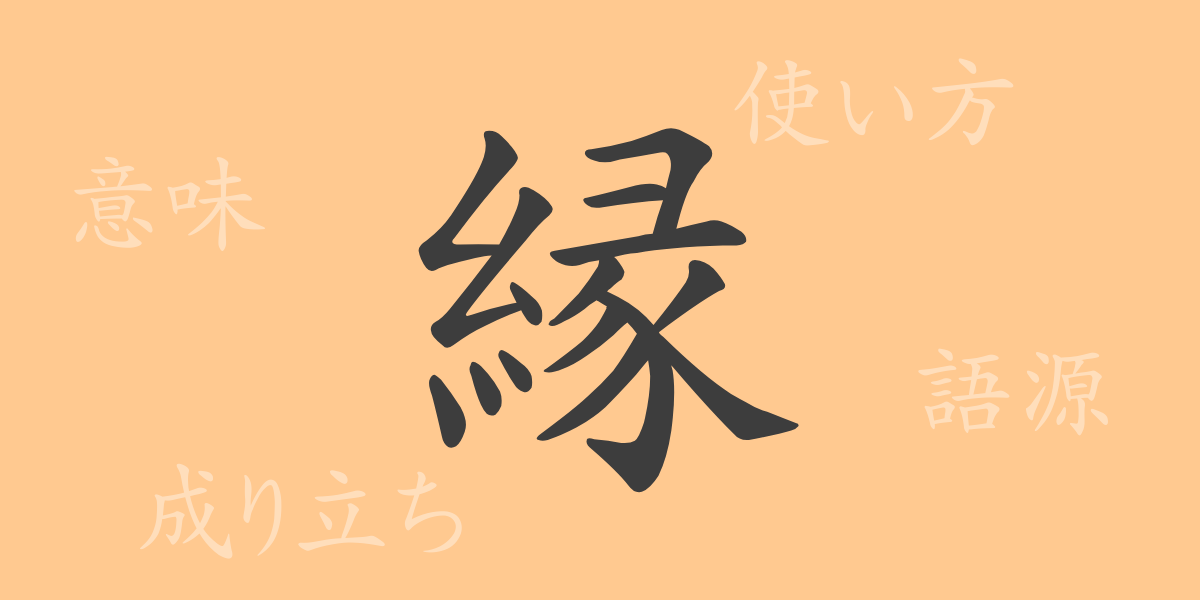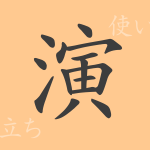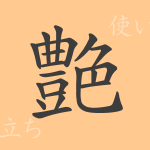“
“”縁”” (En), deeply rooted in Japanese culture, is a fascinating kanji character with various meanings such as connections between people, fateful encounters, and the edge of things. In this article, we will delve into the full picture of “”縁”” (En), from its origin to its modern usage. While feeling the mysterious power that “”縁”” (En) binds, let’s explore the depth of this common kanji.
The Origin (Etymology) of 縁 (En)
The etymology of “”縁”” (En) comes from an ancient character representing the appearance of intertwined threads. From the idea of threads tying together, it came to signify relationships and connections between people. It also became used as a word meaning the edge of things, implying that things with “”縁”” (En) have some kind of connection.
The Meaning and Usage of 縁 (En)
There are three main meanings of “”縁”” (En). The first is “”人と人との縁”” (Hito -to -hito -no -en), referring to the relationship between people, especially fateful encounters and bonds. The second is “”物の縁”” (Mono -no -en), referring to the edge or boundary of things. The third is “”事柄の縁”” (Kotogara- no -en), representing cause-and-effect or sequential relationships. These meanings are important concepts frequently used in daily conversation, literature, and business settings.
Reading, Stroke Count, and Radical of 縁 (En)
The kanji “”縁”” (En) has multiple readings, as if reflecting its rich form and meaning.
- Reading: The on’yomi is “”en,”” and the kun’yomi includes “”fuchi”” and “”yosuga.””
- Stroke Count: A total of 15 strokes
- Radical: Thread radical (Itohen)
Idioms, Phrases, and Proverbs Using 縁 (En) and Their Meanings
Idioms, phrases, and proverbs containing “”縁”” (En) reveal the deep sensitivity and thinking of Japanese people towards “”縁”” (En). For example, “”縁がある”” (En -ga- aru) means that an encounter or relationship with a particular person is destined, while “”縁を切る”” (En -wo -ki-ru) means to sever a relationship. The proverb “”縁の下の力持ち”” (En -no -shita -no -chikaramo-chi) is a phrase praising those who are not prominent but serve as important supporters.
Summary of 縁 ( En)
For Japanese people, “”縁”” (En) is more than just a character. “”縁”” (En), which forms an important part of life, is deeply involved in our way of life and values. The ability to express many meanings with this single kanji, from fateful encounters to small everyday connections, tells the richness of the Japanese language. In the future, cherishing the meaning of this “”縁”” (En) and building relationships between people will surely enrich our culture further.
“

























